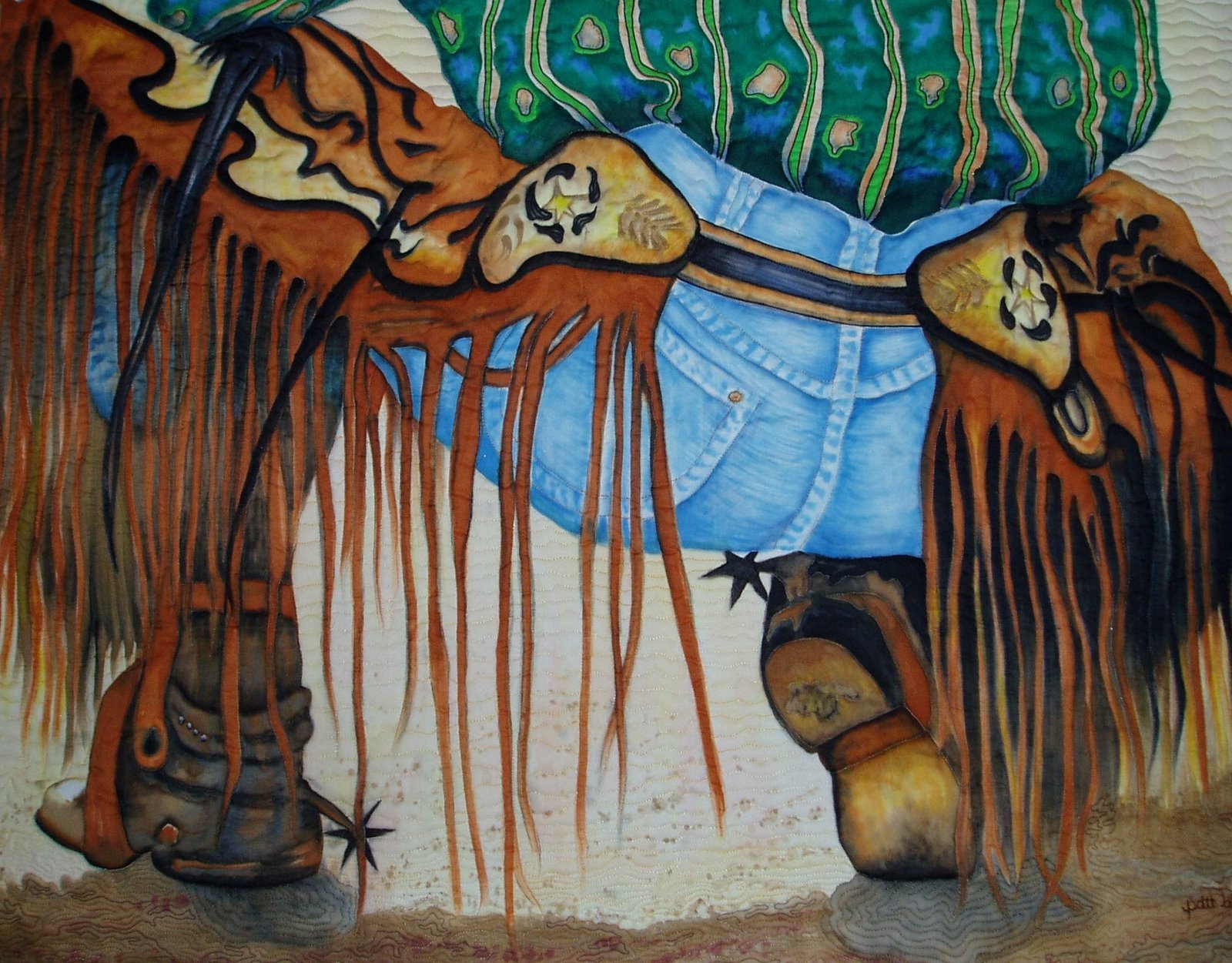As soon as I complete this post, I will be packaging this piece and sending it off to SAQA in prep for their September beginning of the annual auction fundraiser.
First to get it faced.
I cut 4 strips (1/3/4" wide) and added them to the squared up quilted piece using a scant 1/8" seam allowance. It's like adding a sashing to a completed quilt.
Before the facing can be rolled to the back.... I will turn under the outer raw edge 1/4" and stitch
AND
from the front add a stay stitch of sorts at 1/16" off the seam where strips were added. Click on photo for enlarged view.
To better understand this 1/16" stay stitch idea.... see the photo below where the inside left of the 1/4 inch pressure foot is my guide moving directly against the seam. This makes for a uniform stay stitch that pierces the fabric and batting that is in the original 1/8" seam used to add the initial ' face sashing' strips.
Now to turn two of 4 sides to the back. I usually start with the top and bottom edges... dampened facing sashing rolled to the back with an iron and pinned to cool.
One can now use a needle and thread to applique or binding stitch the finished edges to the backing leaving the loose outer edges to be removed as shown below. The intent: get rid of excess bulk before the next 2 sides are turned to the back. The cutout piece can be tossed.
The remaining two sides are pressed/rolled/stitched to the backing using hand miters at the corners. Finally add a sleeve / label where warranted.
In this case.... I have machine stitched a label directly to the sleeve before completing the sleeve as a 'tube' and before adding a sleeve to the top back.
This LABEL albeit small has all the info one would want on any quilt
Title, size, techniques, textile/batting content, artists statement, artist and quilter name, when made, artist location/contact info.
I have come to create lables using Powerpoint. I first photograph my quilt front and have the image in file on my Mac. I open a new powerpoint presentation... slide 1.. pick a background, insert the picture, add text boxes and info about the quilt... then SAVE the slide as a .jpeg rather than a powerpoint presentation. I can then insert the .jpeg into a word doc and can make and print the label any size I want... in this case about 3" x 5" .. small enough to fit on the sleeve. I save copies of all labels created... ie all quilts... in a Documents folder called "labels". I have all the info I ever need about any quilt I've made... all in one place.












































